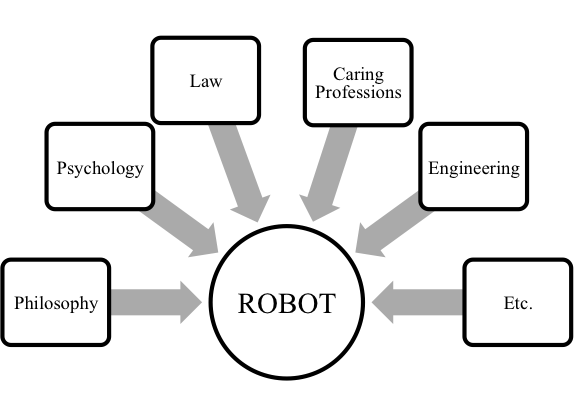
Robohub.org
Igniting a debate on legal, therapeutic and educational robotics

The benefits of assistive technologies are well known – reduced inefficiencies, low costs, available 24/7 and much more. But not so well known are the appropriate legal regulations that need to be negotiated in order for much assistive technology to be put to good use. A new interdisciplinary international workshop seeks to cover this terrain, bridging the gap between two very different disciplines.
The problems are multi-faceted and must be carefully considered: from technical issues inherent in cloud robotics, to security, autonomy, privacy, and legal issues, such as the regulation of replacement of organs by robotic devices. Then there are ethical issues relevant to the acceptance of assistive technology by the general public. Despite recent advances, the multidisciplinary nature of this field means there’s still a long way to go to overcome these problems, and new ones are likely to arise.
In an effort to bridge these different worlds, we conceived an Interdisciplinary International Workshop on the Legal, Ethical and Social Issues regarding Therapeutic and Educational Robotics. It will take place at The 2015 New Friends Conference in the Netherlands this autumn. Here, experts and researchers from different backgrounds are invited to debate the issues that the assistive robotic technology will raise, and propose simple solutions to mitigate challenges.
Broad in scope, the workshop aims to cover not only legal and ethical issues, but to create intelligible bridges between different disciplines: a technological problem raised by a psychologist could, for example, be solved simply by applying privacy enhancing knowledge; the same solution may also be applicable to concerns raised by a caregiver in a hospital.

We also seek to promote inter-community debate on the differing viewpoints various disciplines may hold about what appear to be – on the surface – the same topics. Privacy issues, for instance, are vital to the legal community; they may not appear relevant to roboticists but, in fact, Human Robot Interaction (HRI) is also concerned with privacy. In HRI, it’s about robots invading personal space and is related to proxemics. Another example is the psycho-social problems that loneliness and age-related depression bring. Technologies capable of socially connecting elderly people to the larger world could help mitigate these.
Philosophers, judges, lawyers, academics, psychologists, sociologists, anthropologists, cognitive scientists, engineers, care professionals, practitioners, bioethicists, eco-friendly professionals, communication and audiovisual workers, are all invited to share their thoughts, experiences and concerns.
By combining short presentations about problem areas with panel discussions that provide solutions, and by encouraging researchers from diverse fields who share interests in and concerns about robotics, we aim to cover much ground. The goals are to pave the way for assistive technology’s introduction into healthcare facilities, to reduce the workload of caregivers, and to assist in the therapy of patients.
The Interdisciplinary International Workshop on the Legal, Ethical and Social Issues regarding Therapeutic and Educational Robotics takes place at the New Friends Conference – the first International Conference on Social Robots in Therapy and Education. It will be held in Almere, The Netherlands on 22 and 23 October 2015.
tags: c-Events, cx-Health-Medicine, cx-Politics-Law-Society, cx-Research-Innovation, HRI, Robohub focus on regulating robotics








